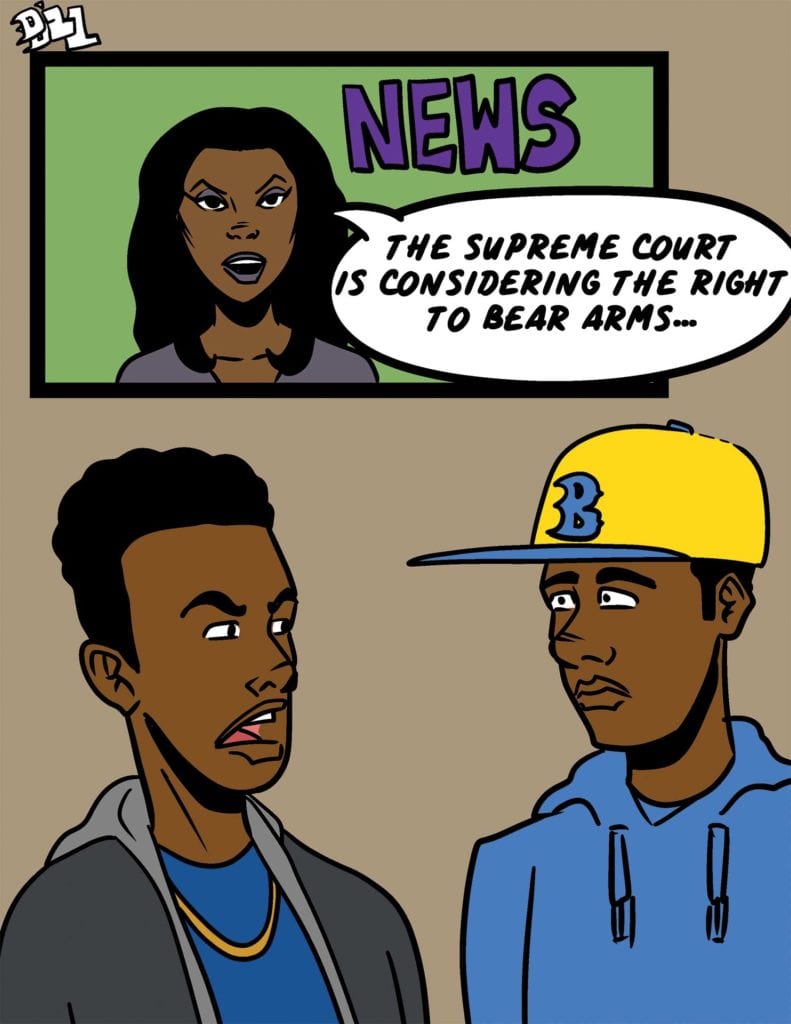
The U.S. Supreme Court now has a case before it to determine whether a state law restricting the right to carry a gun violates an individual’s privileges under the Second Amendment of the U.S. Constitution. It is not enough in the New York case before the court to state there is a speculative need for self-defense. The license applicant must establish special needs for safety such as being involved in guarding valuables or providing personal security for endangered individuals.
Political conservatives, especially those seeking financial support from the National Rifle Association, assert that such restrictions as applied in New York violate the Second Amendment right to bear arms for self-defense. However, California, Delaware, Hawaii, Maryland, Massachusetts, New Jersey and Rhode Island all have similar restrictions to New York’s against carrying arms.
Justice Antonin Scalia wrote the opinion in another Second Amendment case, the District of Columbia v. Heller, in 2008. His ruling has been generally binding on such matters. He stated, “The right secured by the Second Amendment is not unlimited. [It is] not a right to keep and carry any weapon whatsoever in any manner whatsoever and for whatever purpose.”
States have been able to impose restrictions on pistol permits to prohibit possession by persons considered dangerous, to establish conditions for commercial sales and to forbid possession in places where people could be harmed, such as schools. Those supporting stricter rules hope that the recent mass shootings in Indiana, Georgia, Colorado and California might induce the court to establish even tighter restrictions.
A major objective of the Second Amendment is to provide the legality of arms to protect citizens. The goal is to assure safety, but reliance on arms does not always work. According to the Centers for Disease Control and Prevention (CDC), 38,355 Americans were shot to death in 2019, either by homicide or suicide. And there were 40 million guns legally purchased in 2020. The U.S. Supreme Court is now required to judge what Second Amendment policy will actually protect American citizens.
Years earlier, the court was concerned enough about the illegal carrying of guns to rule in the case of Terry v. Ohio in 1968 that police officers had the authority to stop and frisk someone who they reasonably believed was illegally armed or was about to commit a crime. Prior to this ruling, citizens were protected by the Fourth Amendment against such “search and seizure” unless an arrest warrant was outstanding.
This decision was a product of the Earl Warren court that included some of the nation’s most outstanding civil rights advocates: William. J. Brennan, Thurgood Marshall, Thomas Clark, John Harlan, Byron White, Abe Fortas and Potter Stewart. Only Justice William O. Douglas dissented in opposition to the potential harm to citizens from the loss of their Fourth Amendment protection.
Now we know that reliance on police officers to exercise discretion in stopping and searching citizens was ill-advised. With a more relaxed standard, what would prevent some jurisdictions from providing permits to carry weapons to almost anyone who applied for a license? With so many guns already on the street, it is difficult to see how an increase in that number makes America safer, the ultimate objective of the Second Amendment.
At the time that the nation’s forefathers established the U.S. Constitution, there were only 13 states. They undoubtedly expected that other states would be formed in the great continent of North America. The amendment states “A well regulated Militia, being necessary to the security of a free State, the right of the people to keep and bear Arms, shall not be infringed.” It is hard to conclude from that language that the forefathers wanted to make it easier to settle personal disputes.






